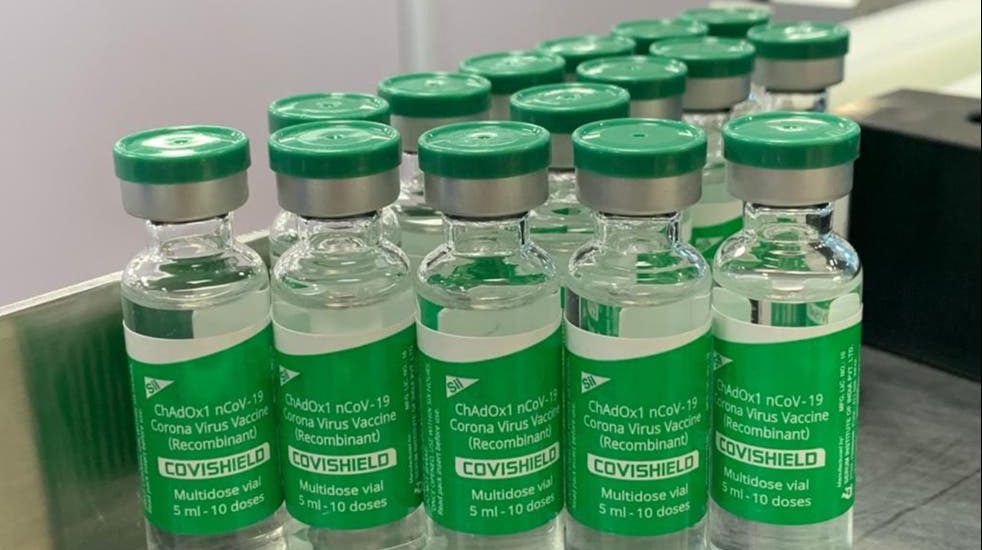- April 24, 2021
- Posted by: Maestro Legal
- Categories:

Cutis Biotech v. Serum Institute of India (April 2021) | Bombay HC
by Vanshika Sharma
Plaintiff has filed the present suit thereby claiming that the defendant has been using the similar trademark “Covishield”, which is already in use by the plaintiff prior to that of the defendant’s mark. The plaintiff claimed that the decree be passed restraining the defendants from using the trademark name ‘COVI SHIELD’ as well as the trade mark ‘COVID SHIELD’ which is identical to that of the plaintiff’s trade mark ‘COVI SHIELD’.
Facts of the case
Briefly, the facts are that the plaintiff Cutis Biotech (plaintiff), a Nanded-based pharmaceutical and medicinal products company filed the suit in the civil court on 4th January, 2021, appealing to restrict the Serum Institute of India (defendants) from using the trade mark “COVISHIELD” or any other identical/similar name for its Covid-19 vaccine. Cutis Biotech thought to register the trademark under Class 5 category of goods in the trade marks register. After finding that there was no already registered trademark under this category, they went ahead and applied for the registration of trade mark “COVISHIELD” on 29th April, 2020, in respect of “veterinary, ayurvedic, allopathic, medicinal and pharmaceutical preparations and vitamins and dietary food supplements for humans and animals” bearing Application No. 4493681 in Class 5 on a “proposed to be used basis” in the name of “Mrs Archana Ashish Kabra w/o Mr Ashish Nandkishor Kabra.” On 15th August, 2020, Indo Rama Engineers, one of the trade partners of plaintiff refrained from supplying multivitamin injection to the plaintiff under the brand name “COVISHIELD” as there was a chance of confusion as asserted by the plaintiff. On 7th December, 2020, the plaintiff realised that the defendant had also applied for the identical trademark before Drugs Controller General of India for the approval of a vaccine used for thwarting the COVID-19, under the trademark “COVISHIELD”. On 11th December, 2020, Cutis Biotech filed a suit against the SII at Nanded District Court to which the objection to jurisdiction was raised by the defendant. Therefore, the plaintiff freshly applied for the trademark “COVISHIELD” on 12-12-2020, in the name of one “Mrs Archana Ashish Kabra w/o Mr Ashish Nandkishor Kabra”, asserting its use since 30th May, 2020.
The plaintiff submitted that, a fresh cause of action to file present suit arose on 2nd January, 2021, when the plaintiff got to know through the website, that the Director of the defendant company Mr Poonawalla made an announcement to launch the vaccine to prevent Covid-19 under the brand name “Covishield”.
Cutis Biotech and SII both did not have their trademarks registered. Sub-Section (1) of Section 27 of the Trade Marks Act, 1999 provides that no person shall be allowed to recover the damages if there has been infringement of the unregistered trademark. But Sub-Section (2) of the same Section provides for taking action against any person by passing off his goods or services. Therefore, the plaintiff proceeded with the case on the action of passing off.
Arguments made on behalf of the plaintiff
Firstly, the plaintiff contended that the trademark “COVISHIELD” was already in use by them as opposed to the defendant. Secondly, the plaintiff argued that the defendant has acted in a manner that has caused harm to the reputation and goodwill of the plaintiff; thereby passing off their trade mark “COVISHIELD”. Thirdly Cutis Biotech(plaintiff) contended that the conduct of the Serum Institute of India (defendant) is of misrepresentation and deceitful to the purchasers in the market. As a result, the distributors are not willing to acquire their product, hence causing huge loss to the plaintiff. It was also argued that both the parties trade across the same trade channels and in a common field of activity.
Arguments made on behalf of the defendant
The defendant contended that the Cutis Biotech had no prima facie case, as it is not manufacturing any vaccine for human use. The major argument made by the defendant is that the defendant is engaged in manufacturing a vaccine for preventing COVID-19 for human use and had applied for the registration of mark “COVISHIELD” for the said vaccine whereas the products of plaintiff relate to “antiseptic, disinfectant liquid for first aid, medical and personal hygiene, hand and vegetable washing liquid, surface decontaminant, etc.” and has no connection with the “vaccine for human use”. Also, it does not provide a cure to prevent COVID-19. As per the defendants, even if the goods fall under the same category of Class 5 goods, the intent of the defendant’s product is completely different from the plaintiff’s product thereby causing no dilemma in the minds of the people. The defendants argued that the plaintiff did not disclose that it applied to the Trade Marks Registry on 12th December,2020 for the registration of trade mark “COVISHIELD” for “vaccine for human use” and hence did not proceed towards the court with clean hands.
The defendants in the present suit referred to the landmark cases of Nandhini Deluxe v. Karnataka Coop. Milk Producers Federation Ltd.[1]and Vishnudas v. Vazir Sultan Tobacco Co. Ltd.[2] and strongly contended that once the registration of trademark is permitted for a product in a class, it does not mean such trademark has the monopoly for the entire class. Also, the time duration for which the product is in the market, matters a lot and if no fraudulent intention or unfair trade is found on the part of defendant then merely plaintiff is prior user of the trade mark cannot be the sole basis for grant of injunction.[3]
Analysis of the Judgment
The Hon’ble Court in the present suit observed that the visual appearance of both the products are totally different therefore, it will not cause any confusion in the minds of the people. The Court strongly relied on Nandhini Deluxe and Vishnudas judgments and held that the ratio decidendi in these casesis certainly applicable to the present facts and circumstances of the case. The Court further stated that Cutis Biotech cannot have monopoly over the mark “COVISHIELD” for the entire class of goods. It was also held that the class of consumers of the defendants are totally different from that of the plaintiff as the defendant was engaged in exporting the products abroad so there was no confusion as to the products. The Court observed that the defendant’s product is the most demanded product all over the world and if the defendants are restricted from using the trademark it would cause hardship to the people. Furthermore, the plaintiff’s subsequent application dated 12th December, 2020 for the registration of “COVISHIELD” for human use shows that the plaintiff had not come with clean hands. Therefore, the plaintiff’s appeal was dismissed accordingly.
[1] Nandhini Deluxe v. Karnataka Coop. Milk Producers Federation Ltd. (2018) 9 SCC 183
[2] Vishnudas v. Vazir Sultan Tobacco Co. Ltd. (1997) 4 SCC 201
[3] R. Dongre v. Whirlpool Corpn. (1996) 5 SCC 714
